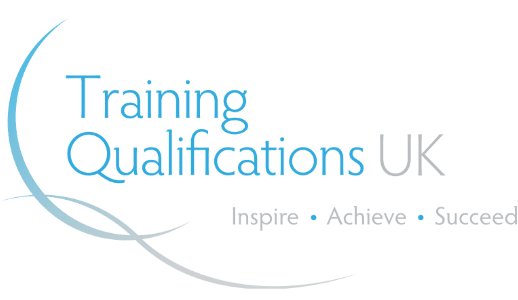What you will learn
-
Unit 1 - Pedagogy / Models of Learning
- Be able to investigate practice in own area of specialism, and pedagogy principles
- Understand the application of theories, principles and models of learning in education and training
-
Unit 2 - Equality, Diversity and Inclusion
- Key features of a culture which promotes equality and values diversity
- Importance of promoting equality and valuing diversity in lifelong learning
- Promote equality and value diversity
- How to help others in the promotion of equality and valuing of diversity
- Review own contribution to promoting equality and valuing diversity in lifelong learning
- Factors which influence learning
- Impact of policy and regulatory frameworks on inclusive practice
- Roles and responsibilities relating to inclusive practice
- Create and maintain an inclusive learning environment
- Evaluate own inclusive practice
-
Unit 3 - Behaviour & Communication
- Apply theories of behaviour management to creating and maintaining a safe, inclusive teaching and learning environment
- Apply theories, principles and models of learning and communication to deliver inclusive teaching and learning
- Understand the application of theories, principles and models of communication in education and training
- Understand potential factors leading to behaviours that disrupt a learning environment
- Understand organisational policies relating to managing behaviours in a learning environment
- Promote behaviours that contribute to a purposeful learning environment
- Manage behaviours that disrupt a purposeful learning environment
- Evaluate own practice in managing behaviours in a learning environment
- Understand the characteristics and impact of behaviours in a learning environment
- Understand legislation and organisational policies relating to managing behaviours in a learning environment
- Analyse theories of behaviour management
- Evaluate own practice in managing behaviours in a learning environment
-
Unit 4 - Wider Professional Practice and Development in Education and Training
- Roles, responsibilities and relationships in education and training
- Professionalism and the influence of professional values in education and training
- Policy context of education and training
- Impact of accountability to stakeholders and external bodies on education and training
- Organisational context of education and training
- Quality improvement and quality assurance arrangements of an organisation
- Safeguarding
- The impact of value on education
- The impact of parental support at home
- The impact of parental support on school personnel
- The Education Act
-
Unit 5 - Making Effective Use of Assessment
- Using initial and diagnostic assessments to agree on individual learning goals with learners
- Assess learning in education and training
- Implement expectations in planning, delivering and assessing inclusive teaching and learning
- Apply theories, models and principles of assessment to assess learning
- Understand the application of theories, principles and models of assessment
-
Unit 6 - Curriculum Design
- Develop resources to meet learning and development needs
- Understand the principles underpinning the development of learning and development programmes
- Develop learning and development programmes
- Review learning and development programmes
- The key features of a culture which promotes equality and values diversity
-
Unit 7 - Critical Reflection & Evaluation
- Evaluate own practice in planning, delivering and assessing inclusive teaching and learning
- Apply theories and models of reflection and evaluation
- Understand the application of theories and models of reflection and evaluation to review own practice
- Principles and methods of evaluating learning programmes
- Plan the evaluation of a learning programme
- Evaluate the effectiveness of a learning programme
Awarding Body

TQUK is the fastest growing Ofqual regulated awarding organisation in the UK. Operating in over 400 centres worldwide, they provide a wide range of vocational qualifications that conform to a high standard, specialising in the areas of first aid, education and training, health and safety, and health and social care.
View our other Training Qualifications UK qualifications.
Awarding Body

TQUK is the fastest growing Ofqual regulated awarding organisation in the UK. Operating in over 400 centres worldwide, they provide a wide range of vocational qualifications that conform to a high standard, specialising in the areas of first aid, education and training, health and safety, and health and social care. Click here to confirm its accreditation with OfQual.
At the end of this course, successful learners will be awarded a formal DET Level 5 qualification certificate of achievement by TQUK. Our Level 5 Diploma in Education and Training online course has been designed specifically to meet the needs of learners who prefer to study from home. Learn more about different qualification levels here.
How is this course assessed or examined?
This course is assessed in two ways:
Tutor-marked assignments (TMAs)
Each unit is followed by a tutor-marked assignment (TMA) which will be completed at the end of each module and marked by your tutor.
You will not be required to take an external exam with this course as your portfolio of evidence is internally assessed by us and externally quality assured by the awarding body. The outcomes for each TMA are Achieved or Not Yet Achieved. Your tutor will provide feedback on your work, and should there be any amendments required, they will outline what is needed for you to complete that assignment.
Observation (included)
This course requires eight observations. This means that somebody will need to observe you in practice. This could be in a workplace or a voluntary placement. These practical observations are as follows:
- Internal Observation – there are three in total, and they can be conducted by a qualified person within your placement
- External Observation – there are five in total, and they will be carried out by an Oxbridge Assessor (we’ll visit you)
We offer five complimentary external observations for this course to any student on the UK mainland, which in addition to the internal observation, is enough to complete the course.
Read more about practical observations
Entry requirements
To enrol on this course, you’ll either already be a trainee teacher with subject-specific experience, working with a teaching organisation or have a confirmed trainee teacher placement with a teaching organisation.
There is a mandatory practical requirement of 100 hours of teaching practice, 8 of these hours will need to be observed by a teaching-qualified colleague or mentor who will support you on your journey through this qualification.
You should hold English and Maths at level 2.
Due to the nature of this course, the minimum starting age is 19.





